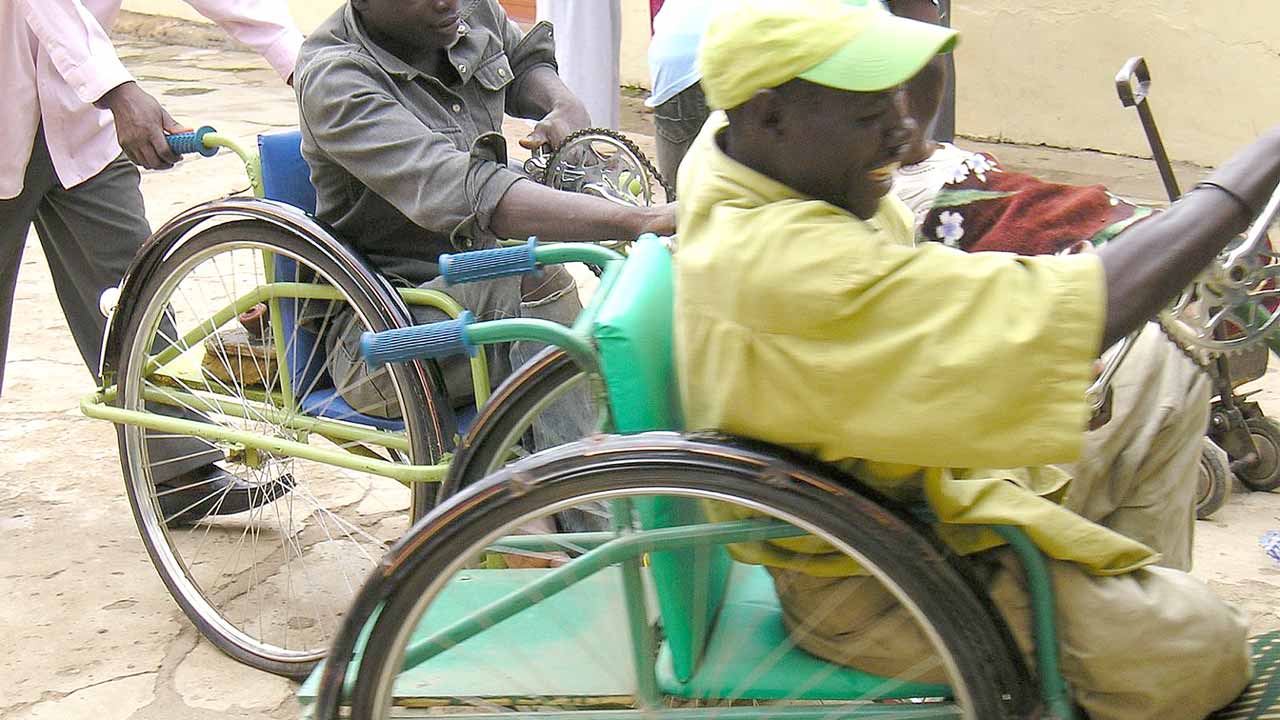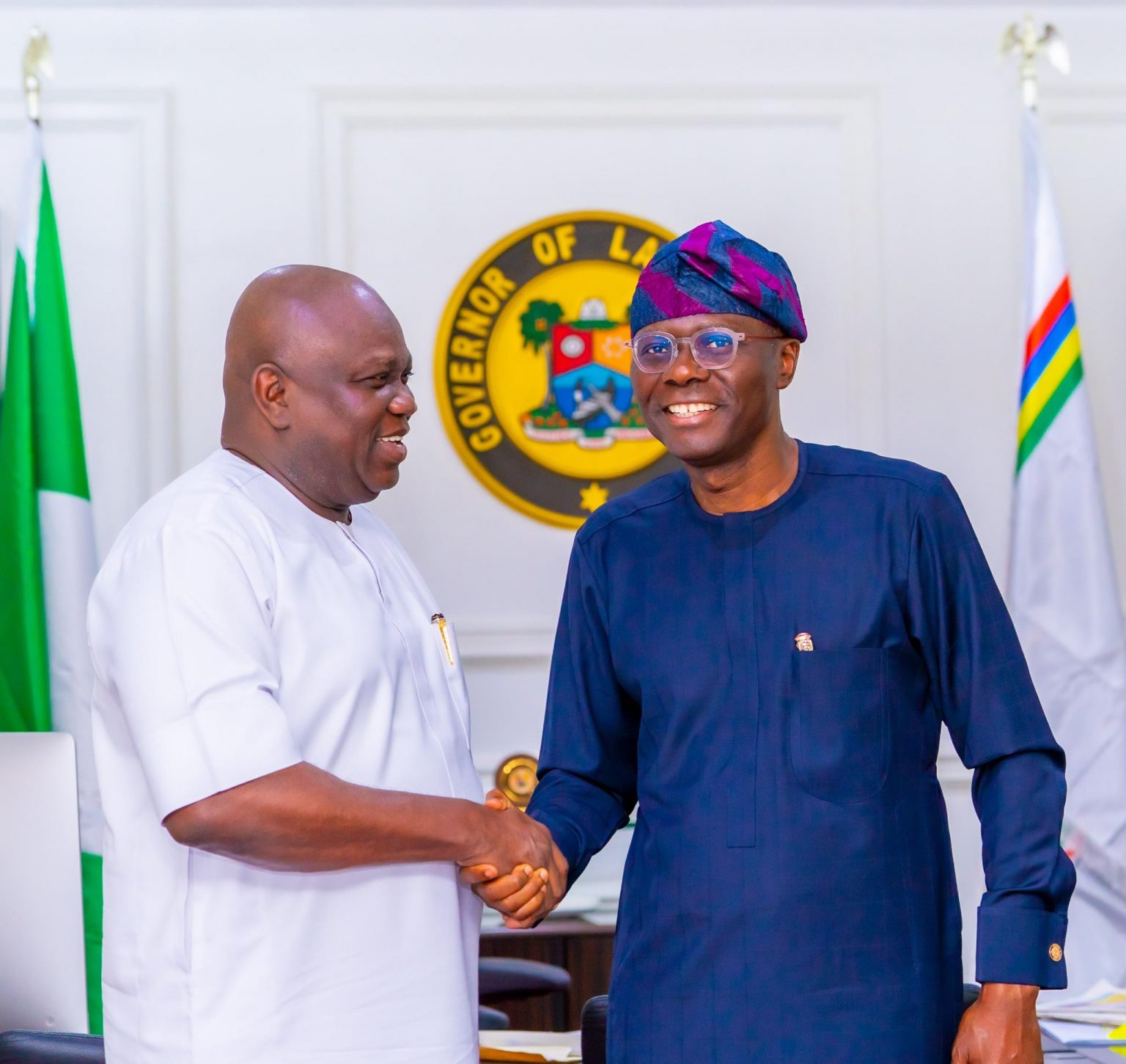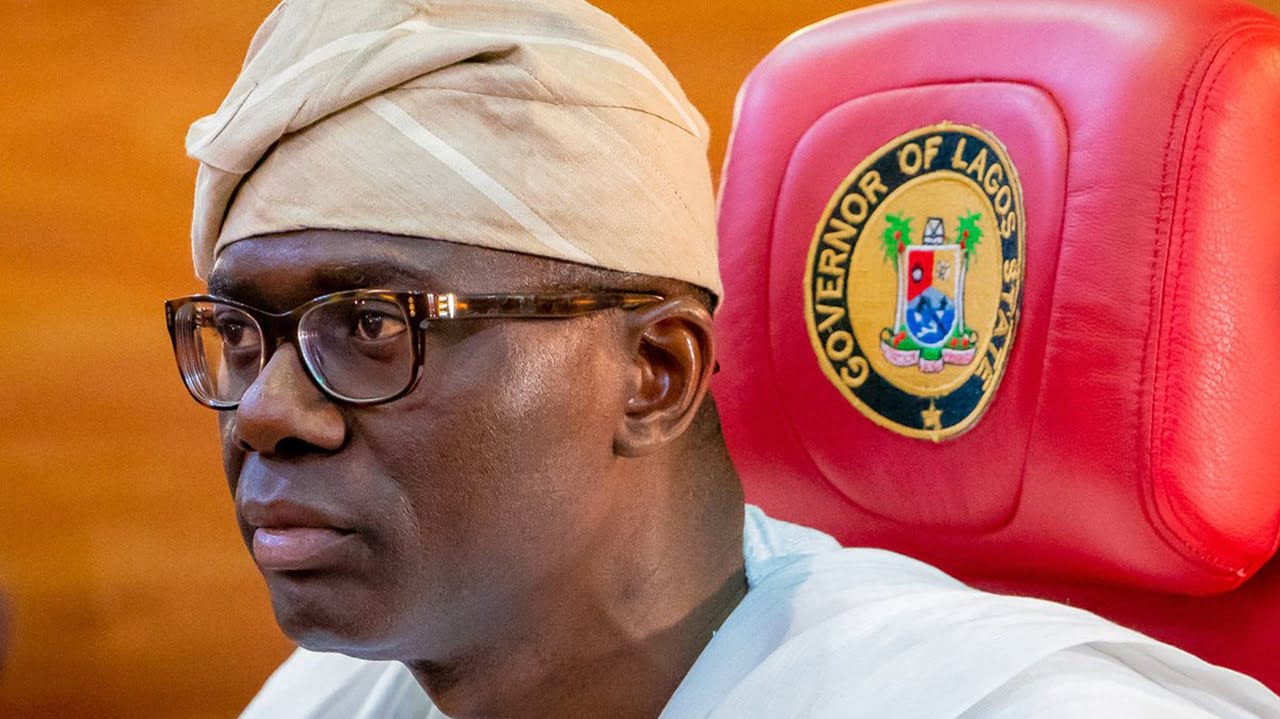Opinions
PWDs in Lagos groan, while LASODA, its GM grows fat? –Yinka Olaito
But despite all these, the stark realities confronting People with Disabilities(PWDs) in Lagos show no significant progress has been made when the investment made and benefits envisaged are weighed on the balance.

The enactment of Special Peoples ‘Laws by Lagos state in 2011, the Creation of a Special Assistant to the governor’s position on disability Affairs and the eventual creation of the Lagos State Office of Disability Affairs Agency and some other commendable efforts instituted by the state government administrations from Raji Fashola to Ambode and now Babajide Sanwo-Olu was intended to establish an inclusive society which leaves no one behind.
But despite all these, the stark realities confronting People with Disabilities(PWDs) in Lagos show no significant progress has been made when the investment made and benefits envisaged are weighed on the balance. PWDs in Lagos had noted with concern a lack of Lagos state’s government’s political will and commitment which will guarantee the achievement of the purpose for all the efforts and investments on their issues.
The population of PWDs continues to soar, World report on disability by the World Health Organization, an estimated 15% of about 1Billion people have a form of disability or the other across the globe. This is because aside from genetically induced disability, some through accidents do become a PWD. Out of the 1Billion PWD global population, 80% of this live in the developing world while 2Million of this population resides in Lagos. This calls for critical planning not to leave many behind.
LASODA, its GM and PWDs community
The establishment of Special Peoples’ law in Lagos provided for the appointment of a General Manager, who is the administrative head of the agency. Mr. Oluwadamilare Ogundairo through his appointment became the pioneer and existing General Manager.
Mr Ogundairo’s appointment, which was initially welcomed with joy is allegedly turning into a nightmare for the PWDs in Lagos as the situations of the community had not improved significantly despite state investments and efforts to leave no one behind
i. PWDs Stakeholders concern and ’perceived highhandedness’ of General Manager, LASODA
PWDs communities in Lagos have several clusters with each of these having its own leader. There is the visually impaired(blind) led by Abolarinwa Salami, Spinal Cord injury cluster led by Mr Matepo, the Association of Intellectual and developmental disability led by Mrs Roseline Jokotola, Physical disability led by Prince Rotimi Adeniyi, the Joint National Association of physical disability Lagos led by Sehu Adebayo, there is hearing impaired(deaf), there is also Albinism cluster led by Mr, Tolani Ojuri, Leprosy cluster led by Baba Muhammed as well as Dwarf cluster led by Israel Akinyode among others.
Many of these cluster heads expressed non-inclusion of their opinions or even zero consultation with them when decisions were made by the Mr Dare Dairo-led administration of LASODA, especially in programme planning and implementation. The cluster heads had also written a letter to the general manager on some of these issues.
Yet a few, considered to be loyal allies to the general manager, were silent on this. But this reporter is in possession of jointly signed letters and communique which expressed their displeasure at the way LASODA is being run. Some of the letters were addressed to the governor, deputy governor, and the wife of the governor when all entreaties and letters written to LASODA general manager had failed.
Some of these letters were written and dispatched to respective offices in 2021 and nothing had been done about it which made some of the cluster heads felt there may be alleged complicity of officials in these various offices with the general manager of LASODA hence the silence on non-responsive approach by higher authorities to issues raised.
ii. PWDs rights abuses and neglect
In our discussions with some cluster heads and some PWDs in Lagos, the general consensus is that in many instances LASODA, the Agency in charge and management often delay or posits a carefree attitude to several issues of violence brought to its office. A PWD named Seun when interviewed complained bitterly about the abuse of rights, and violence against her person by her landlord as well as his son.
Seun said she wrote and provided photo evidence and every necessary document to the LASODA office and General Manager to help her get a redress. But after a long while and nothing was done, despite her persistent call, and visits to the LASODA office, a member of PWD asked her to go to another human rights group which promptly responded to noted abuses of her rights.
Accessibility issues and LASODA silence
The United Nations Convention on the Rights of People with Disabilities had been ratified by 185 Countries including Nigeria. The 2030 sustainable development Agenda adopted by several heads of State affirmed disability should not be a reason for accessibility.
But the case may seem different in Lagos. Lagos is considered one of the most inaccessible cities in the world. For instance, with transportation, Lagos State public initiated Bus Rapid Transport has no assistive mechanism that will allow PWDs to assess its use. There is a clear absence of ramps for wheelchairs in some public buildings and infrastructures. Where it exists, technical details are overlooked so much that assisted mobile tricycles used by some PWDs may not be able to climb. This is the case with many pedestrian bridges and many public offices.
In terms of education, despite efforts made by the state government, not much has been achieved significantly in terms of education of children with disabilities. Not many public schools have structure and facilities to accommodate admission and full inclusion, integration of children with disabilities. The 49 inclusive, specialized schools despite their stigma could not accommodate the numbers available and the facilities there are inadequate. It was also reported the schools were grossly underfunded, understaffed
So if the out-of-school children are properly captured children with disability will constitute a significant number in the state. This is not unique; Lagos state population is a factor. UNICEF had raised alarm about an increase in the number of out-of-school children in sub-Saharan Africa. In all of these issues, the voice of LASODA had not been loud enough or is even silent outside marking international days and running ‘jamboree’ events
In the area of health, many of the clusters and their leaders had complained bitterly of exclusion or zero attention. Though there is a Lagos health insurance by Lagos State Health Management Agency which the general manager keeps encouraging PWDs to embrace.
But the gross inadequacy of this health insurance in relation to PWDs is obvious. Many of the peculiar health challenges of Intellectual and development, Albinism among other clusters are not captured in the health scheme. Besides the free opportunities in the health schemes only last a year.
iii. Programme sustainability and ‘Contracts for boys’?
A check on Lagos states public procurement website which outlines different budgetary allocations to different Ministries and MDAs showed LASODA got Millions of Naira in allocation yearly. Some had allegedly claimed the agency gets an average of N500 million yearly.
But for the 2022 LASODA budget, items like training of all sorts, allowances, purchase of items, a celebration of international days, travels, consultancies, conferences, types of diesel, empowerment for PWDS and festival (which many had complained had not had much direct and sustainable impact on PWDs) took a whooping sum.
In one of the complaint letters written and signed by PWDs cluster heads, issues of sustainability of many programmes were questioned. The cluster heads argued if there had been consultations, the programme sustainability process and assurances would have been easy.
In many instances, some other individuals had alleged as well as insinuated contracts awarded had been questionable with regards to the legal authenticity, and the existence of the companies awarded.
iv. Disability Trust fund
Section 12, (subsection 4) of SPL, which allows establishment of a disability trust fund gives opportunity to LASODA to be involved in the administrations of this. During Akinwunmi Ambode’s tenure, N5Million per average is allegedly allocated to this fund annually. This was initially abandoned by the Sanwo-Olu administration, Findings again showed some undisclosed sum was released again in 2022. Though every effort to get the total sum released was abortive as neither LASODA general manager or any of the agency staff was willing to answer questions despite several visits to the agency’s office.
In one of these visits, we were asked to write an official letter in this regard which we did and submitted but despite an appointment given by the Agency through the staff member, Mrs Eniola, the general manager refused to grant the interview. For 2022 disbarment, we gathered from cluster heads of PWDs that the fund was divided into two. One hundred Thousand naira for Empowerment purposes and fifty thousand for social support for each PWD in the state.
Many of the cluster heads, at least the Association of Intellectual and Developmental Disability, said none was paid in her cluster while in the Visually impaired (blind) cluster, many got paid but 16 of its members were left out.
No serious leader will go on rest- Peter Obi swipes at Tinubu
According to Mr Matepo, in the spinal Cord injury cluster, 27 members were not paid the One Hundred Thousand naira while 9 members were also excluded from the fifty-thousand-naira social security. Prince Rotimi Adeniyi of the physical disability cluster told our reporters he did not have the figure but will get back after confirming from the secretary which we assumed he forgot to do to date. Mr Tolani Ojuri of the Albinism cluster also did not give any data.
Many concerned individuals claimed the alleged secrecy associated with this fund, especially with regard to 2022 disability trust fund’s release is giving opportunities to some elements within the system.
Failure of the state and how this creates loopholes for LASODA and its inefficiency
With regard to the alleged rot in the LASODA, many had laid the blame at the state government’s door. First, the Special Peoples ‘law has 19 sections. Only a few in it allow full integration of LASODA into its implementations. Many of the PWDs cluster heads also blame the state government for the lack of inauguration of the LASODA board, which could have had an oversight role over LASODA management. That is if any board exists at all.
In terms of procurement process and protocol infringement in LASODA many believe the process give opportunities for certain flaws. This might have been the reason thorough due diligence on the legal status of some of the companies that work for LASODA were not done. Though on paper, especially on the state’s public procurement website everything looks okay at face value.
What PWDS in Lagos want?
“We do not say life should revolve around us” affirmed many cluster leaders as well as PWDs community members in Lagos interviewed. But at least create an enabling environment that helps us thrive through individual’s efforts.
Section 9(sub section 1,2&3) even made provision for PWD to use Public transport for free, but if this is not possible, there can be an arrangement of discount, one of the disability cluster leaders charged. This must also be included in many other demands which include health, education and gainful employment etc.



